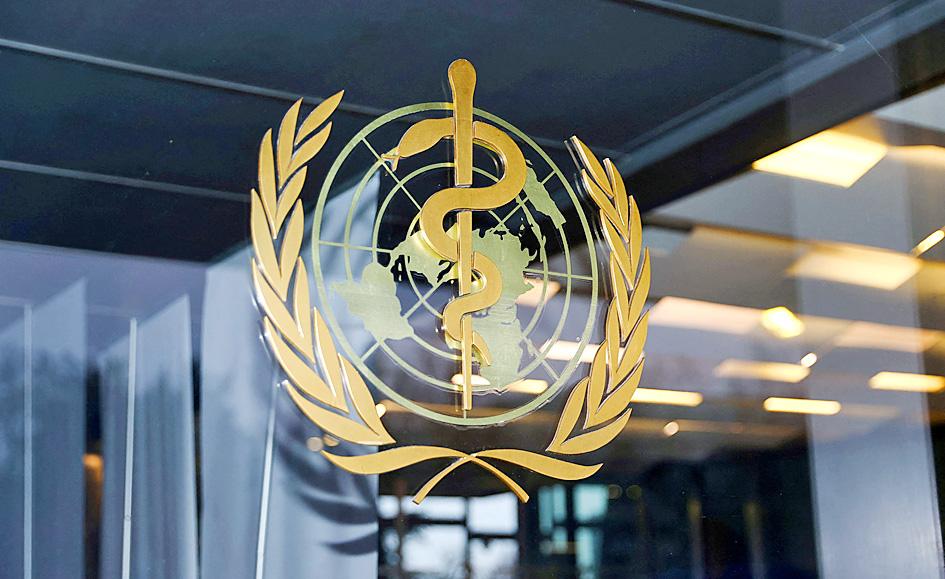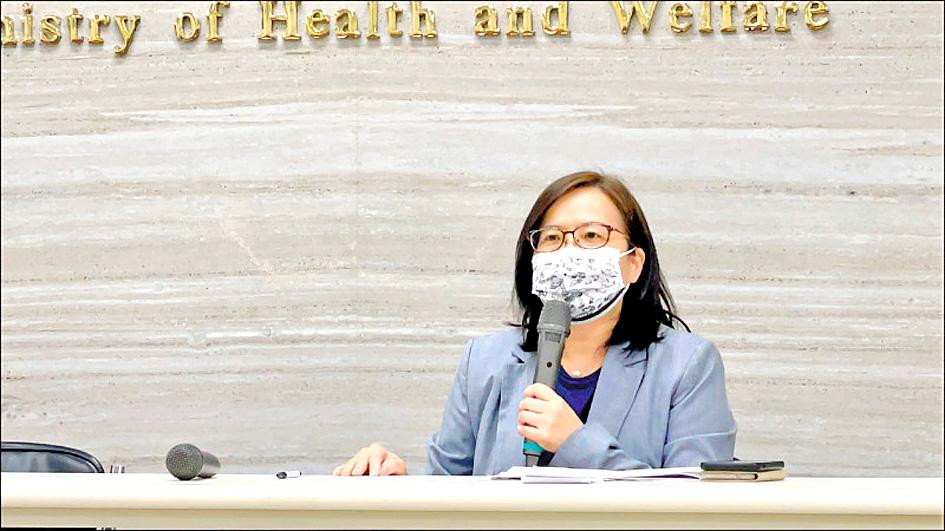Five foreign missions in Taiwan, including the American Institute in Taiwan and the Japan-Taiwan Exchange Association, yesterday issued a joint statement backing Taiwan’s participation in the World Health Assembly (WHA) as an observer.
The statement, which was also signed by the Australian Office in Taipei, the British Office Taipei and the Canadian Trade Office in Taipei, reaffirmed “support for Taiwan’s meaningful participation in the work of the World Health Organization and Taiwan’s participation as an observer in the World Health Assembly.”
As health experts in Taiwan are working diligently to counter growing community COVID-19 transmission, excluding Taiwan from the WHA would hamper those efforts, and compromise global health and safety, the statement said.

Photo: Reuters
Taiwan’s meaningful participation in forums and committees of the WHO would benefit Taiwanese and the world, and the WHA would also “benefit from Taiwan’s world-class expertise,” it said.
However, the support — along with the backing of 71 governments, legislative bodies and parliamentary groups for Taiwan’s participation at WHO events — is not likely to have much effect on Taiwan’s bid to participate in the WHA, which begins today in Geneva, Switzerland, the Ministry of Foreign Affairs said.
Taiwan has not been invited to the annual conference, which runs until Saturday.

Photo: Yang Cheng-yu, Taipei Times
Taiwan’s most recent invitation was in 2016.
As has been the case in the past few years, there is expected to be some discussion about Taiwan at the WHA.
Thirteen of Taiwan’s 14 diplomatic allies submitted a proposal to invite Taiwan to participate as an observer, with the issue expected to be addressed today by the WHA’s general committee, said Steven Solomon, the WHO’s principal legal officer.
The committee would make a recommendation to the plenary session on the issue, Solomon said.
A delegation led by Deputy Minister of Health and Welfare Lee Li-feng (李麗芬) departed on Friday for Geneva to campaign for Taiwan’s inclusion in the WHO and its annual assembly.
The delegation would seek bilateral talks with health envoys outside the WHA meetings to explore ways to cooperate on public health, the ministry said in a statement.
Meanwhile, President Tsai Ing-wen (蔡英文) yesterday said in a three-minute video that countries are increasingly supporting Taiwan’s WHA bid.
She thanked those countries for standing with Taiwan.
“With more support from the international community and more opportunities for international participation, Taiwan will become even more resilient and will be able to contribute even more to freedom and prosperity around the world,” Tsai said.

Taiwan has received more than US$70 million in royalties as of the end of last year from developing the F-16V jet as countries worldwide purchase or upgrade to this popular model, government and military officials said on Saturday. Taiwan funded the development of the F-16V jet and ended up the sole investor as other countries withdrew from the program. Now the F-16V is increasingly popular and countries must pay Taiwan a percentage in royalties when they purchase new F-16V aircraft or upgrade older F-16 models. The next five years are expected to be the peak for these royalties, with Taiwan potentially earning

STAY IN YOUR LANE: As the US and Israel attack Iran, the ministry has warned China not to overstep by including Taiwanese citizens in its evacuation orders The Ministry of Foreign Affairs (MOFA) yesterday rebuked a statement by China’s embassy in Israel that it would evacuate Taiwanese holders of Chinese travel documents from Israel amid the latter’s escalating conflict with Iran. Tensions have risen across the Middle East in the wake of US and Israeli airstrikes on Iran beginning Saturday. China subsequently issued an evacuation notice for its citizens. In a news release, the Chinese embassy in Israel said holders of “Taiwan compatriot permits (台胞證)” issued to Taiwanese nationals by Chinese authorities for travel to China — could register for evacuation to Egypt. In Taipei, the ministry yesterday said Taiwan

Taiwan is awaiting official notification from the US regarding the status of the Agreement on Reciprocal Trade (ART) after the US Supreme Court ruled US President Donald Trump's global tariffs unconstitutional. Speaking to reporters before a legislative hearing today, Premier Cho Jung-tai (卓榮泰) said that Taiwan's negotiation team remains focused on ensuring that the bilateral trade deal remains intact despite the legal challenge to Trump's tariff policy. "The US has pledged to notify its trade partners once the subsequent administrative and legal processes are finalized, and that certainly includes Taiwan," Cho said when asked about opposition parties’ doubts that the ART was

If China chose to invade Taiwan tomorrow, it would only have to sever three undersea fiber-optic cable clusters to cause a data blackout, Jason Hsu (許毓仁), a senior fellow at the Hudson Institute and former Chinese Nationalist Party (KMT) legislator, told a US security panel yesterday. In a Taiwan contingency, cable disruption would be one of the earliest preinvasion actions and the signal that escalation had begun, he said, adding that Taiwan’s current cable repair capabilities are insufficient. The US-China Economic and Security Review Commission (USCC) yesterday held a hearing on US-China Competition Under the Sea, with Hsu speaking on